Latest News
EGDF: UNITY’S INSTALL FEES ARE A SIGN OF LOOMING GAME ENGINE MARKET FAILURE
Step by step, video game engines are becoming key gatekeepers of European cultural and creative sectors. Currently, Unity dominates game engine markets, Unreal being its primary challenger. These two engines are not just clear market leaders in the game industry but increasingly vital market actors in film, architecture, and industrial design and simulations. In 2022, Unity reported that globally, 230,000 game developers made and operated over 750,000 games using the Unity Engine and the Unity Gaming Services portfolio of products.
Unity’s new fee structure is going to have a drastic impact on the game industry.
Over the years, the Unity game engine has reached close to unofficial industry-standard status in some game markets. Its well-designed tools and services have lowered the market access barriers in the game industry. Furthermore, it has played a crucial role in removing technological barriers to cross-platform game development. Now, Unity has informed the game dev community that it will move from subscription-based fees to subscription and install-based fees, which will significantly increase the game development costs for most game developers relying on their services. EGDF finds it unfortunate that Unity has significantly damaged its reputation as a reliable and predictable business partner with these sudden and drastic changes in its pricing principles.
Bigger game developer studios have the luxury of being able to develop their own game engines. Consequently, market uncertainty and significantly increased service provider risks caused by Unity’s new fee structure will hit, in particular, SME game developers. It will be much harder for them to build reliable business plans, make informed decisions on game engines, and run a profitable business. Many of these studios struggled to access risk funding before Unity’s announcement, and it has only worsened their situation.
Unity’s decision will have a broader impact on the whole game industry ecosystem. Many professional game education institutions have built their curriculum on the Unity game engine. If Unity’s new pricing model starts a mass exodus from Unity’s engine, it will lead to rapid changes in professional game education itself and place many young industry professionals who have built their career plans on mastering Unity’s tools in a very difficult position.
Although Unity’s decision will cause significant challenges for the industry, EGDF kindly reminds that instead of focusing on blaming individual Unity employees for the changes, it is far more productive to focus on taking measures that increase competition in game engine markets.
Unity’s anti-competitive market behaviour must be carefully monitored, and, if required, the European competition authorities must step in.
Unity is an increasingly dominant market player in the game markets. According to Unity’s own estimate, in general, 63% of all game developers use its game engine. The share can be even higher in some submarkets. Unity estimates that 70% of top mobile games are powered by its engine. Unsurprisingly, Unity’s game engine is now a de facto standard in mobile game markets to the extent that whole formal professional game education degree programmes have been built on training its use. However, Unity’s market dominance is not just based on the quality of its game engine. It is also an outcome of aggressive competition practices and systematic and methodological work of making game developers dependent on Unity services.
How Unity bundes different services together potentially distorts competition in game middleware markets. Over the years, Unity has, step by step, bundled its game engine more and more together with other game development tools under the Unity Gaming Services portfolio. Unity is not just a game engine; it is also a player sign-in and authentication service, a game version control tool, a player engagement service, a game analytics service, a game chat service, a crash reporting tool, a game ad network, game ad mediation tool, an user acquisition service and in-game store building tool. This creates a significant vendor lock risk for game developers using Unity services. It also makes it difficult for many game middleware developers to compete against Unity and, all in all, significantly strengthened Unity’s game engine’s market position compared to its rivals.
Now, Unity is strategically using install fees to deepen the lock-in effect by creating a solid financial incentive to bundle other Unity services even closer to its game engine: “ Qualifying customers may be eligible for credits toward the Unity Runtime Fee based on the adoption of Unity services beyond the Editor, such as Unity Gaming Services or Unity LevelPlay mediation for mobile ad-supported games. This program enables deeper partnership with Unity to succeed across the entire game lifecycle.” This will, of course, drastically impact Unity’s direct competitors.
Unity’s install fees are an excellent example of Unity’s potentially anti-competitive market behaviour. It is clear that if Unity’s pricing model had, in the past, been similar to the now-introduced model, it would likely never have achieved the level of dominance it enjoys today, as more developers would have chosen another alternative in the beginning.
The fact that Unity’s new install fees are only targeted at video games and do not apply to other industries logically leads to a question: Is Unity setting prices below cost level at different market segments, or is Unity charging excessive prices in game markets? Furthermore, does the fact that Unity is now introducing an install fee on top of the licensing fee mean that licensing fees have before been below cost level? Or does the introduction of install fees on top of the licensing fees of their game engine allow them to provide other, lock-in generating, services below cost level?
In the end, Unity has built its dominant position in game markets for years and systematically made game developers more dependent on it. It is a good question if Unity has now crossed the line of abusing its market dominance on weaker trading parties that deeply depend on its services. Game productions can take years, and game developers cannot change their game engine at the last minute, so they are forced to accept all changes in contract terms, no matter how exploitative they are. Unity must know that if they had given more notice, many more developers might have had a realistic chance of abandoning Unity altogether by the time the new pricing came into play.
The new install fees will limit game developers’ freedom to conduct business as it pushes them to implement Unity ad-based business models even in games that otherwise would not have ad-based monetisation. Furthermore, this will create a competitive disadvantage for those game distribution platforms that do not use ad-based monetisation at all (e.g. subscription services and pay-per-download games), as Unity is de facto forcing them to increase their consumer fees compared to channels that allow the use of Unity’s ad-based monetisation tools.
The new install fees will likely lead to less choice for consumers. Install fees will allow Unity to extract value from games that generate a lot of installs through, e.g. virality, but do not necessarily generate money. Install fees will lead to markets where game developers want to limit the downloads and try to avoid installs from the wrong players. This can potentially kill part of the game market. For example, indie developers that have an unfortunate mix of being a success on the number of installs but that are struggling to generate revenue, or hyper-casual game studios based on combining a huge install base with minuscule revenue generated per game.
In the long run, the EU needs to update its regulatory framework to answer the challenges caused by dominant game engines.
Unity’s install fees demonstrate why the EU needs a new regulatory framework for unfair, non-negotiable B2B contract terms. Contract terms Unity has with game developers are non-negotiable. With the new non-negotiable install fee, European game developers have to either withdraw their games from markets, increase consumer prices or renegotiate their contracts with third parties. For example, if a game memory institution makes games available for download on their website, a game developer studio must now ask for a fee for it or ban making European digital cultural heritage available to European citizens. The three-month time frame Unity is providing for all this is not enough.
The Commissions should introduce a specific regulation for non-negotiable B2B contract terms. The regulation should provide sufficient time (e.g. in a minimum, six months) for markets to react to significant changes in non-negotiable terms and conditions that a service provider has communicated to their business users in a plain, clear and understandable manner (e.g. now it is unclear how Unity counts the installs). Furthermore, the Commission should bring much-needed market certainty by banning retroactive pricing and contract changes.
The Commission should include game engines in DMA. While reviewing the recently adopted Digital Markets Act (DMA), the Commission should consider lowering the B2B user thresholds and adding gatekeeper game engines under its scope. This would, for example, ensure that Unity cannot use data it collects through its game engine to gain an unfair competitive advantage for its other services like advertisement services.
The Commission should increase its R&D support for the European game industry. The fact that there is no major competitor for Unity Engine that does not require constant back-end server connection is a market failure in itself. The Unity Game engine is not fully scalable because Unity has built its engine in a way that it calls home every time it is installed to report instals for Unity. Consequently, the Commission should strengthen its efforts to support the emergence of new European game technology and business service providers. In particular, the Commission should increase its support for privacy-friendly open-source alternatives for game engines, like for example Godot or Defold or similar, that do not require constant back-end server connection and thus have no need for scalable revenue-based fees or install fees.

Latest News
Mr. Gamble Forum Revamp Sparks Record Growth and Global Expansion
Mr. Gamble Forum, a fast-growing online gambling community, has rolled out a major platform revamp that is already delivering record-breaking growth in traffic, visibility, and user engagement. Timed perfectly ahead of the industry’s busiest season, the update strengthens the forum’s position as a go-to destination for casino and sports betting discussions worldwide.
The refreshed platform combines a cleaner design, expanded content, and new marketing capabilities, all built around a single goal: creating a space where players can freely share real experiences while operators connect with highly motivated users.
“We’ve invested a lot of effort into improving both the user experience and the commercial potential of the forum,” said Paul Puolakka, CMO of Mr. Gamble. “This update reinforces our vision of an open, trusted community that benefits players and partners alike—and the growth we’re seeing confirms we’re on the right track.”
Strong Growth Momentum Following the Revamp
The impact of the update has been immediate. In Novembe 2025, compared to December 2024, Mr. Gamble Forum recorded a sharp rise across all key performance metrics. Daily clicks increased by 270%, daily impressions climbed by 471%, and monthly clicks grew by 380%. These numbers reflect not only improved visibility in search engines but also a growing appetite for a community where players can openly discuss casinos, bonuses, slots, and betting strategies.
Sports Betting Content Broadens the Forum’s Scope
One of the most significant additions is the expansion into sports betting content. The forum now features dedicated discussions around upcoming games, betting strategies, and odds, giving sports bettors a place to exchange insights in real time. Alongside these discussions, users can explore a steadily growing selection of sports betting bonuses, including both long-term promotions and limited-time offers from leading brands.
This addition allows Mr. Gamble Forum to serve a broader audience while keeping casino players and sports bettors under one unified community.
Localized Promotions for Key Regions
As part of the revamp, Mr. Gamble Forum has also refined how promotions are presented. Players from Australia and New Zealand now have their own dedicated sections where they can immediately discover the most relevant casino and betting offers available to them. This localized approach makes it easier for users to find deals that actually apply to their region, while increasing engagement and conversion potential for operators.
A Clear Step Toward Global Expansion
The forum’s international ambitions are already taking shape. A dedicated Swedish-language version of the forum has recently gone live, giving Swedish players a space to participate in discussions in their native language. Early engagement data shows positive signs, suggesting strong potential as localized promotions and content continue to expand.
Over the past year, the forum has seen its strongest growth in the United States, the United Kingdom, Canada, and New Zealand, and Sweden is now emerging as another promising market.
New Opportunities for Casino and Betting Partners
Beyond user-facing improvements, the revamp introduces new commercial features designed to support partners. Updated call-to-action elements help guide users toward relevant offers, making it easier for casinos to attract players who are already in a decision-making mindset.
For a limited time, Mr. Gamble Forum is also offering partners the opportunity to test forum marketing free of charge, as long as they can provide geo- and IP-targeted dynamic banners. This allows operators to explore the forum’s potential, reach high-intent audiences, and gather performance insights without upfront risk.
A Community Built on Real Player Experiences
Despite the platform’s growth and new features, the core of Mr. Gamble Forum remains unchanged: community-driven discussion. Players continue to share honest reviews of casinos, compare bonuses, talk openly about slot games, and exchange betting strategies. This transparency has been a key factor behind the forum’s rising visibility and trust among users.
As more players join and more regions come online, these conversations are becoming richer, more diverse, and increasingly valuable for both users and operators.
What Comes Next for Mr. Gamble Forum
The December revamp marks the beginning of a new phase for the platform. Further international expansion is already on the roadmap, alongside improvements to mobile performance, contributor rewards, and partner analytics. Each development is designed to strengthen the ecosystem and keep the forum relevant as the online gambling landscape continues to evolve.
Conclusion
With its latest update, Mr. Gamble Forum has transformed from a growing community into a truly global platform. The combination of rapid traffic growth, expanded sports betting content, localized promotions, and innovative partner opportunities highlights a clear direction forward. Backed by strong momentum in the US, UK, Canada, New Zealand, and early success in Sweden, the forum is well positioned to become one of the most influential discussion hubs in the online gambling industry.
As Paul Puolakka summarizes, “When players feel heard and operators see real value, growth follows naturally. That’s exactly what we’re building with Mr. Gamble Forum.”
The post Mr. Gamble Forum Revamp Sparks Record Growth and Global Expansion appeared first on Gaming and Gambling Industry Newsroom.
Latest News
TEAM VITALITY RUN IT BACK FOR THEIR 2026 LEC ROSTER
- Team Vitality is kicking off the new LEC season with renewed energy and a hunger to prove themselves on the international stage.
- With superstar mid laner Marek “Humanoid” Brázda joining the lineup, alongside the support of an experienced coaching staff, the club is confident in its ability to compete at the highest level in 2026.
- The squad’s goal is straightforward: become a top team in the LEC and qualify for Worlds in North America next year.
- Next year marks a new chapter in the club’s long-term strategy to develop and elevate European talent, creating an environment built to deliver results.
Team Vitality is proud to present its new LEC roster for 2026. Throughout the upcoming season, the club aims to build on its existing core and further develop the team’s talent, while welcoming a new mid laner and a strategic Head Coach to elevate performance.
BACK WITH NEW FIREPOWER
The stage is set, and Team Vitality returns to the LEC more determined than ever. At the heart of this ambitious new roster is Kaan “Naak Nako” Okan, the Turkish superstar top laner, who will anchor the team. With the roster built around his talent, communication, and leadership, Team Vitality aims to make a deep run and achieve its first EMEA title.
Roster composition
- Kaan “Naak Nako” Okan (Turkish) – 20 years old: The centrepiece of Team Vitality’s project, Naak Nako is an incredibly talented player known for his versatility and impact. A former high-level volleyball player, he began his professional League of Legends career in 2022 with Fenerbahce. Team Vitality then picked him up in December 2023, spent a year developing in the academy, and promoted him to the main roster, bringing both potential and dedication to the LEC squad.
- Linas “Lyncas” Nauncikas (Lithuanian) – 21 years old: The hardworking engine of Team Vitality, Lyncas brings his relentless drive and consistency to the refreshed roster. Having played for several teams in the ERL and EMEA Masters, he was recruited by Team Vitality in May 2024. Now entering his third year in the LEC, Lyncas combines experience, adaptability, and a deep understanding of the league to power the team’s 2026 ambitions.
- Marek “Humanoid” Brázda (Czech) – 25 years old: A veteran of the LEC scene and one of its most consistent mid laners over the past five years, Humanoid is repeatedly ranked among the league’s top 3 midlaners and has qualified for Worlds multiple times with rosters such as Fnatic and MAD Lions. Joining the Hive, Humanoid reunites with longtime teammate and fellow Czech Carzzy, bringing renewed motivation, experience, and leadership that the club hopes will translate into success and lead them to the Worlds stage.
- Matyáš “Carzzy” Orság (Czech) – 23 years old: Consistently recognised as one of Europe’s best ADCs, Carzzy enters his seventh LEC year with a wealth of experience and a proven track record, having previously lifted three LEC trophies with MAD Lions. He brings a great personality as well as undeniable skill to Team Vitality. This season, he looks to flourish alongside his new teammate Humanoid, building strong synergy and impact in the hopes of bringing the teams to new heights.
- Kadir “Fleshy” Kemiksiz (Turkish) – 24 years old: Having played for Vitality.Bee for seven months, Fleshy was promoted to the main roster last year ahead of the Summer Split. He quickly made his mark in the scene by bringing stability and reliable performances to the bot lane, leaving a strong impression on fans and teammates alike. Now entering his first full year in the LEC, Fleshy is ready to fully prove himself and make a lasting impact on Team Vitality’s road to Worlds.
Coaching staff
- Patrick “Pad” Suckow-Breum (Danish) – Head Coach: A competitor through and through, Pad brings a lifelong passion for sports, having previously competed at a high level in football. He has been a coach in League of Legends since 2017, taking his first steps into the LEC with MAD Lions in 2020. Joining Team Vitality in December 2023 alongside Head Coach Mac, Pad is now taking the next step in his career as the team’s Head Coach, ready to lead Team Vitality to new heights with his experience, discipline, and vision.
- Danusch “Arvindir” Fischer (German) – Strategic Coach: An ambitious coach, Arvindir began his career in professional League of Legends as an analyst for top LEC organisations, including SK Gaming and Splyce, before transitioning into coaching. He has worked across all the major ERL leagues, including a 3.5-year tenure at BIG, before moving on to KOI and Team BDS Academy, where he led the team to victory in the 2024 EMEA Masters Summer Split. Joining Team Vitality in 2025 as the Head Coach of the LFL roster, he has proven his worth in developing Vitality.Bee, and has now been promoted to Strategic Coach of the LEC team.
- Luka “Lukezy” Trumbić (Croatian) – Assistant Coach: Lukezy has been involved in competitive League of Legends since 2014, initially as a semi-pro player before transitioning to coaching in 2023. He has previously worked with UCAM and NNO, gaining valuable experience across several competitive environments. Joining Team Vitality in December 2024, Lukezy now enters his second LEC season as the team’s Assistant Coach, where he has a hands-on role in player development.
”The addition of Marek to the roster reflects our strategic ambitions for the upcoming LEC season. Over the past 18 months, we have focused on developing Lynacs and Naak, making 2026 a key performance year for the team. We are confident that we now have all the pieces in place to compete for the top positions in LEC. While this season will be decisive, our team thrives under pressure, positioning us well to meet the challenge.” explains Patrick “Pad” Suckow-Breum, Head Coach of the team.
A NEW ERA BEGINS
With a clear goal in mind of reaching the international stage, Team Vitality enters 2026 determined to make this its breakthrough season. The team’s mission is bold, yet simple: establish itself as a top contender in each LEC split and secure qualification to Worlds. The organisation is committed to elevating European talent and building a team capable of competing at the highest level.
“We are building on the momentum from 2025, with results continuing to improve. We’ve added experience and an X-factor in a key position, in the hope that this will serve as a catalyst to confirm the potential of the young players we backed last year. We are confident that they can demonstrate that European talent is capable of competing for the qualifying spots at the World Championships.” says Fabien “Neo” Devide, President and co-founder of Team Vitality.
See you at the LEC 2026 Versus tournament in Berlin, starting on January 17th for the beginning of the competition!
The post TEAM VITALITY RUN IT BACK FOR THEIR 2026 LEC ROSTER appeared first on Gaming and Gambling Industry Newsroom.
Latest News
Registration Open: N1 Puzzle Promo Show & Winner Announcement in Barcelona
N1 Partners will celebrate the finale of the global N1 Puzzle Promo for partners – running from April 21 to December 31, 2025 – and award the grand prize, a Robinson R22 Beta II helicopter, at an exclusive party in Barcelona during the ICE and iGB conferences. The special guest of the event will be Tommy Cash.
Registration for the party is now open.
Participants – especially those at the top of the leaderboard – still have the final two weeks to influence the results and break into the prize-winning top three. After all, the grand prize – a Robinson R22 Beta II helicopter – is something no one in the industry has ever given away before…
The main motto of the exclusive final show-event of N1 Puzzle Promo will be “Because we can” – a philosophy of high achievement and top performance by the promo leaders, running like a red thread throughout the entire event.
This is more than just a party – it’s a community and a private club for top N1 Partners affiliates and guests, industry leaders, media, and influencers, accessible only to the select few. “Because we can” is about limitless opportunities for scaling, the ability to achieve top results together, and creating experiences unmatched in the industry.
N1 Partners reveals long-awaited event details
Date: January 20, 2026
Time: 20:00
Location: Barcelona, Spain
What highlights are planned for the guests?
- award ceremony for the top 3 and presentation of the grand prize – the Robinson R22 Beta II helicopter
- exclusive prizes raffle among all guests
- a performance show, DJ set and additional surprises
- activity zones (red carpet, photo area, bar, VIP lounge with hookahs, and much more)
And, of course, the long-awaited special guest of the evening…
Get ready for the unforgettable performance of edgy Estonian rapper and musician – Tommy Cash!
Register now for the N1 Partners show-event via the link: https://n1puzzle.promo/en.html
After all, why drive when you can fly?
And be number one with N1 Partners?
News source: N1 Partners
The post Registration Open: N1 Puzzle Promo Show & Winner Announcement in Barcelona appeared first on Gaming and Gambling Industry Newsroom.
-

 Latest News1 week ago
Latest News1 week agoSCCG Announces Strategic Partnership with Yellow Elephant Studios to Expand Multi-Channel Gaming Content Worldwide
-
Latest News3 months ago
Announcement: 25th September 2025
-
Latest News1 month ago
JioBLAST Launches All Stars vs India powered by Campa Energy: A New Era of Creator-Driven Esports Entertainment
-
Latest News3 months ago
The Countdown is On: Less Than 3 Months to Go Until The Games of The Future 2025 Kicks Off in Abu Dhabi
-
eSports1 month ago
CS:GO Betting Gains Momentum in the iGaming Sector
-
Latest News2 weeks ago
THE 2025 PUBG MOBILE GLOBAL CHAMPIONSHIP GROUP STAGE WRAPS UP WITH LAST CHANCE IN SIGHT
-
Latest News3 months ago
Evolution launches Sneaky Slots — a Bold New Slot Studio
-
Latest News3 months ago
Leading The Charge! Euronics Group Joins LEC As Official Electronics Retail Partner




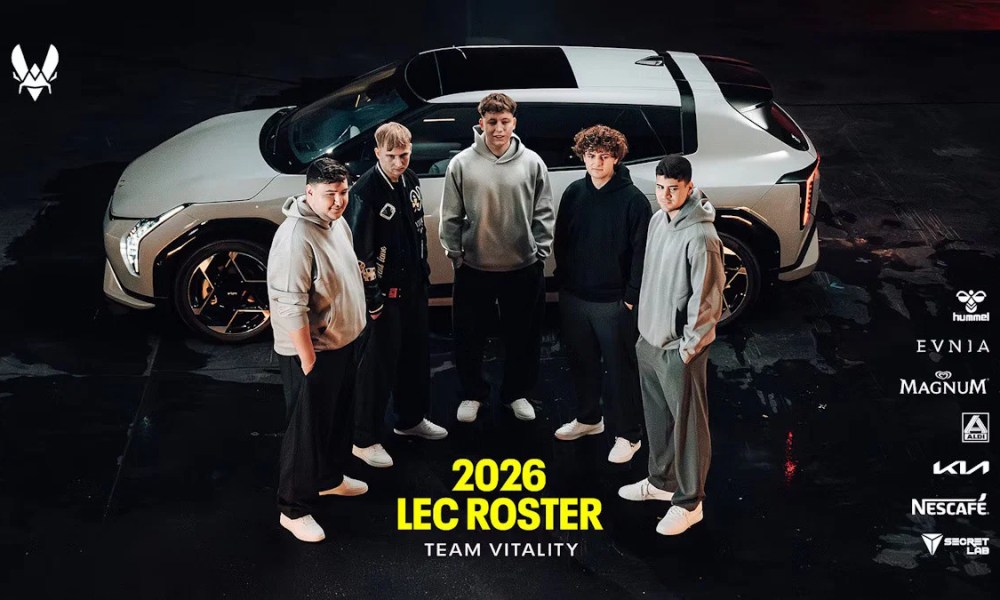
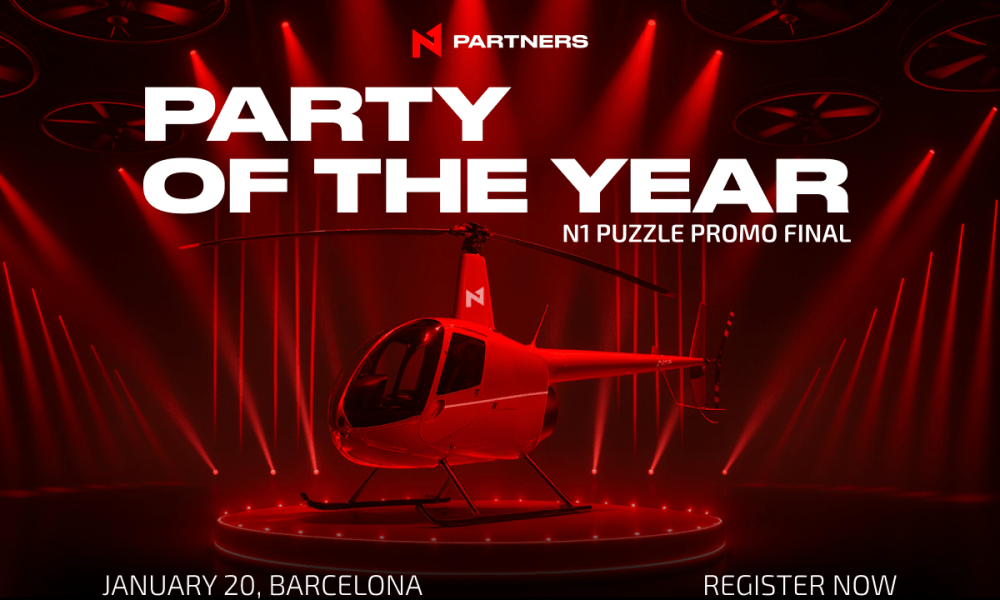
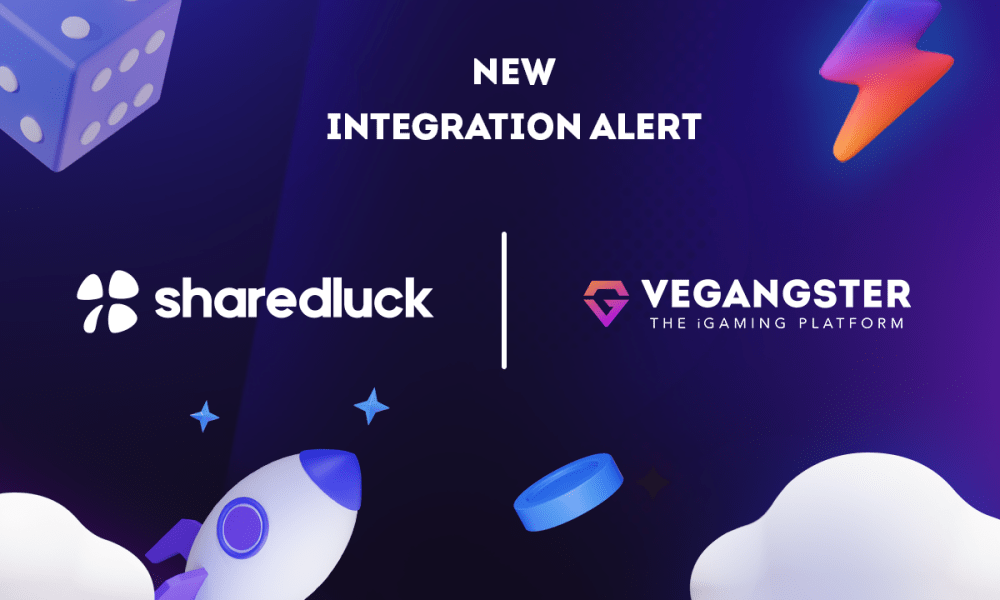
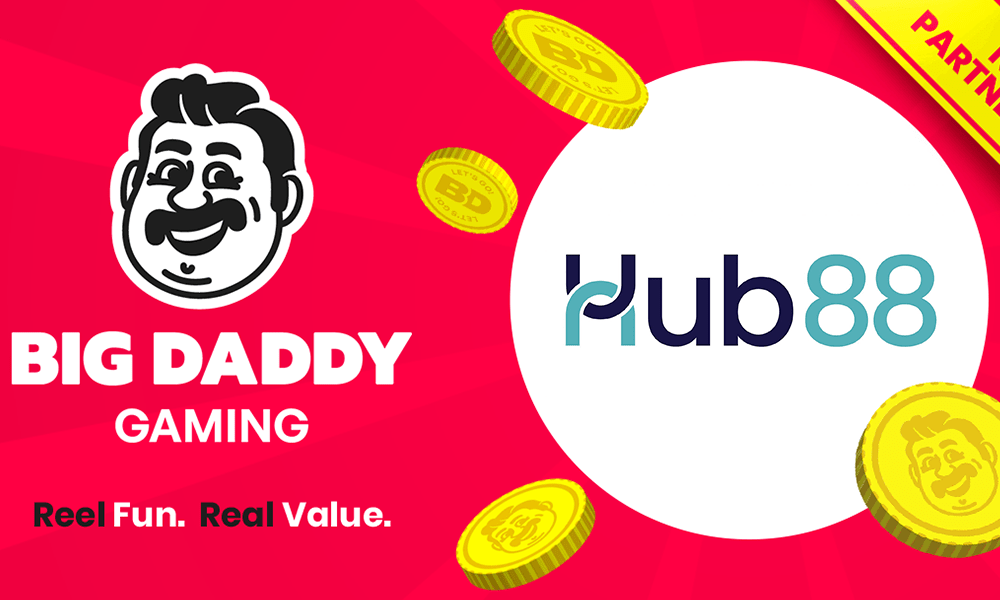
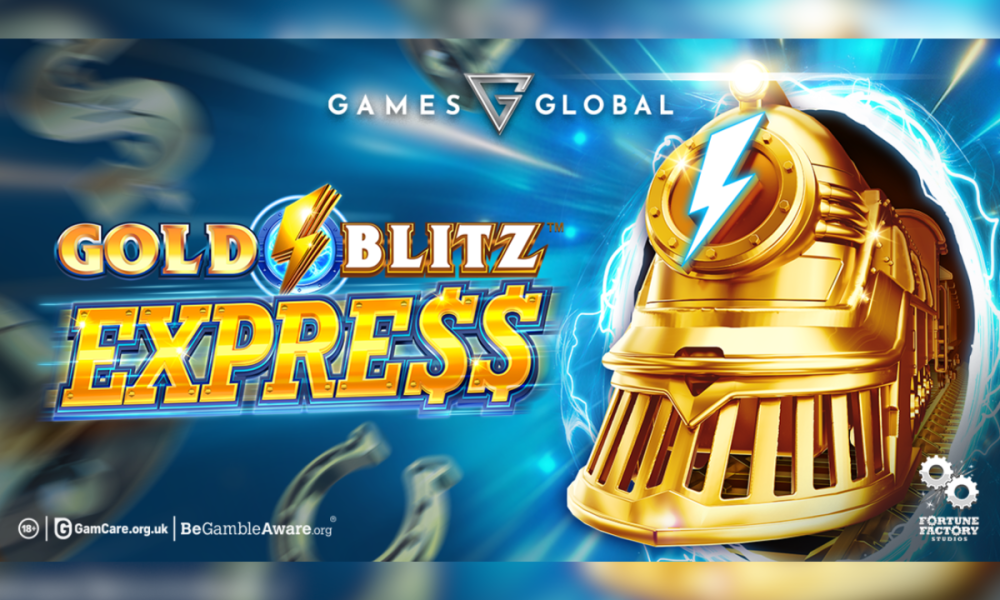

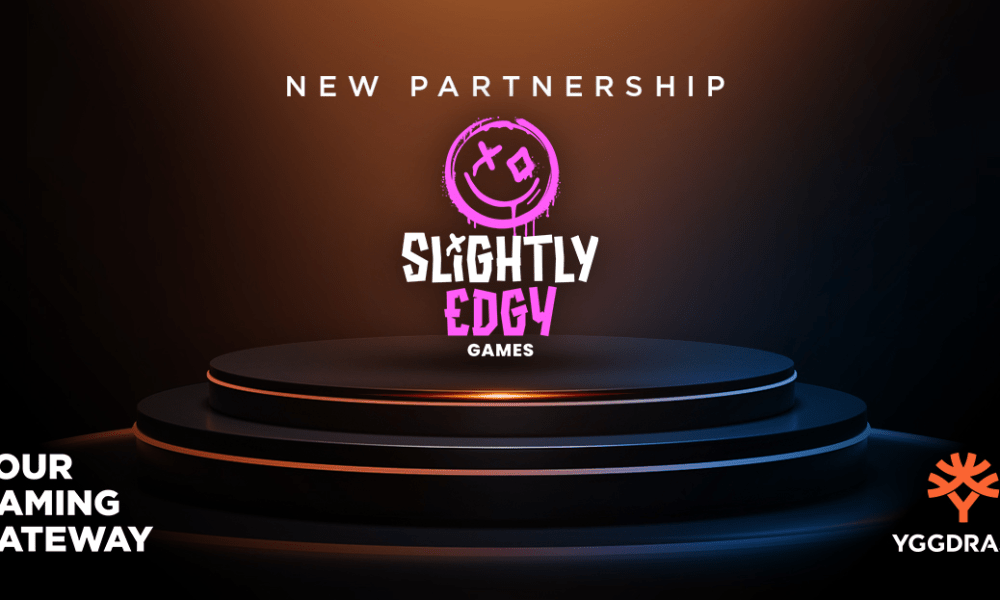
You must be logged in to post a comment Login